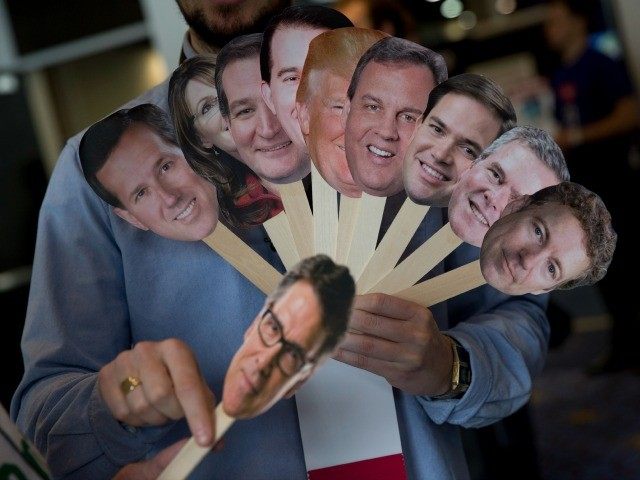Democracy is often messy. It also doesn’t always fit within the needs of modern-day TV programming. Trying to winnow an expanding field of GOP candidates into a manageable debate programming format, Fox News has announced that only the top 10 candidates, determined by an average of 5 polls, will participate in the first televised debate on August 6th.
This guideline may seem reasonable in the programming offices of Fox News, but as a substantive evaluation of the GOP nomination, it is worthless. Worse, the current Fox News debate plan could easily devolve into a kind of “Ames Straw Poll,” existing in its own universe outside of the actual nomination contest.
At present, there are 16 declared or likely candidates for the GOP nomination. With such a crowded field, using poll numbers as any kind of test of viability is problematic. In the current RealClearPolitics average of polls, former Florida Gov. Jeb Bush is the frontrunner with 16 percent support. Frontrunner, however, is a relative term when 84 percent of poll respondents select another option.
Only one other candidate, Wisconsin Gov. Scott Walker, scores in double-digits. The rest of the candidates poll in the single digits. Factoring in the margin of error in most polls–generally at least 5 percent in partisan samples–every potential candidate has a similar level of support. Statistically, there is no real difference between a candidate receiving 9 percent support and one receiving 1 percent.
Setting aside the difficulty of gleaning dispositive information from a poll of such a crowded field, Fox’s planned guidelines invite campaigns to try to game the rules. A one point move in the polls could shuffle a number of people into, or out of, the first debate. Dominating a few days of cable advertising or earned media could thrust a candidate from last in the standings to a coveted podium on the Fox News stage.
The Ames Straw Poll, until cancelled this year, was a long-standing political event in Iowa where campaigns purchased tickets for supporters to “cast votes.” House Republican Michele Bachmann famously won the straw poll months before the 2012 Iowa GOP caucuses. Her victory secured her lots of national attention, but when actual votes were cast in Iowa, she finished far behind.
The Ames straw poll was a singular event, liable to gaming by ambitious campaigns, with little predictive value of actual results. Fox’s planned guidelines offer a reprise.
Perhaps the chief failing of the Fox News plan for the GOP debates, though, is that it is happening too soon. By selecting some kind of subset of the declared candidates, the Fox debate will itself influence the race for the nomination. There are, however, more than 5 months until the first voters file into caucus rooms in Iowa.
It is simply too soon to try to winnow the field. There are at least a half-dozen major variables that could significantly impact the 2016 election. Major world events in Greece, China, Iran, the Middle East or Russia could easily reshuffle the voters’ issue priorities. The economy or federal budget situation could look very different in just a few months. Even the Republican’s likely opponent, the Democrat nominee, could look very different at the end of the year than it does today.
Fox, with its debate rules, is both trying to speed up the GOP nomination process and inject itself into the voters’ decision-making process. It is also trying to do so within the limits of a manageable TV format. We would be better served if Fox tried to adapt itself to the nomination campaign rather than the other way around.

COMMENTS
Please let us know if you're having issues with commenting.